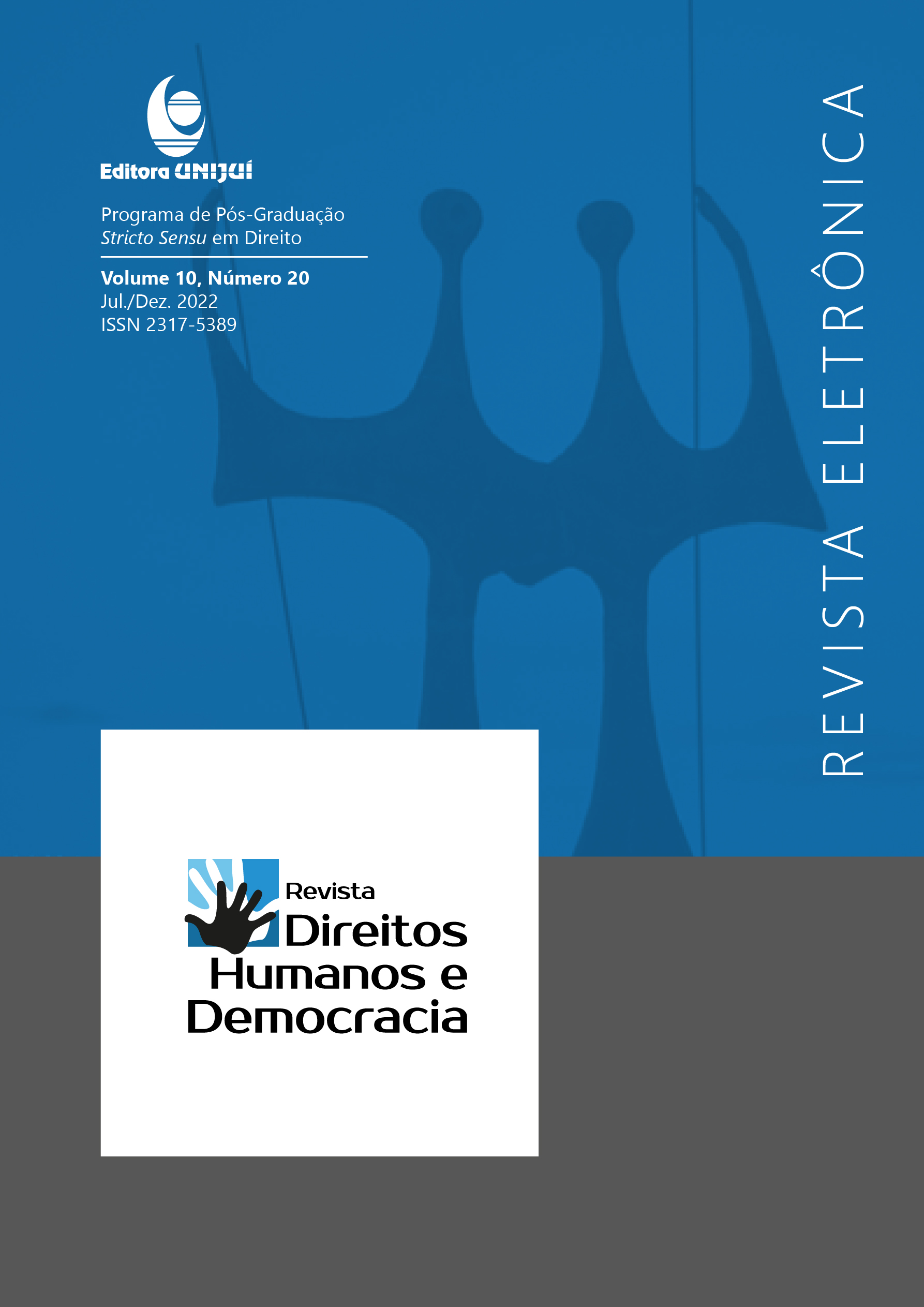Collaborative consumption from the perspective of social, labor and productive inclusion of migrants in a situation of vulnerability and refugees
DOI:
https://doi.org/10.21527/2317-5389.2022.20.13473Keywords:
Collaborative Consumption, Dignity of the Human Person, Migration, Social InclusionAbstract
This article aims to propose the use of collaborative consumption allied to the constitutional foundation of the social value of work and free enterprise in the implementation of public policies to ensure the principle and guideline of the Brazilian migratory policy of social, labor and productive inclusion of migrants in a vulnerability situation and of the refugee. In this scenario, based on the deductive method, documentary and bibliographical research, at first, the article analyzes the human rights crisis under the paradigm of the migratory phenomenon in the globalized postmodern era. Then, we will observe the condition of vulnerable migrant and the refugee, besides the respect for the dignity of the human person. Afterwards, the social value of work and the social, labor and productive inclusion of vulnerable migrants and refugees will be examined. Finally, we will be propose the use of collaborative consumption as an instrument for social inclusion of the vulnerable migrant and the refugee and the economic and social development through the implementation of public policies.
Downloads
Published
How to Cite
Issue
Section
License
Copyright (c) 2022 Revista Direitos Humanos e Democracia

This work is licensed under a Creative Commons Attribution 4.0 International License.
By publishing in the Revista Direitos Humanos e Democracia, authors agree to the following terms:
Articles are licensed under the Creative Commons Atribuição 4.0 Internacional (CC BY 4.0), which allows:
Share — copy and redistribute the material in any medium or format;
Adapt — remix, transform, and build upon the material for any purpose, including commercial use.
These permissions are irrevocable, provided the following terms are respected:
Attribution — authors must be properly credited, with a link to the license and indication of any modifications made;
No additional restrictions — no legal or technological measures may be applied that restrict the use permitted by the license.
Notices:
The license does not apply to elements in the public domain or covered by legal exceptions.
The license does not grant all rights required for specific uses (e.g., image rights, privacy, or moral rights).
The journal is not responsible for opinions expressed in the articles, which remain the sole responsibility of the authors. The Editor, with the support of the Editorial Committee, reserves the right to suggest or request modifications when necessary.
Only original scientific articles presenting research results of interest, not previously published or simultaneously submitted to another journal with the same purpose, will be accepted.
References to trademarks or specific products are intended solely for identification purposes and do not imply any promotional endorsement by the authors or the journal.
License Agreement: Authors retain copyright over their articles and grant the Revista Direitos Humanos e Democracia the right of first publication.













